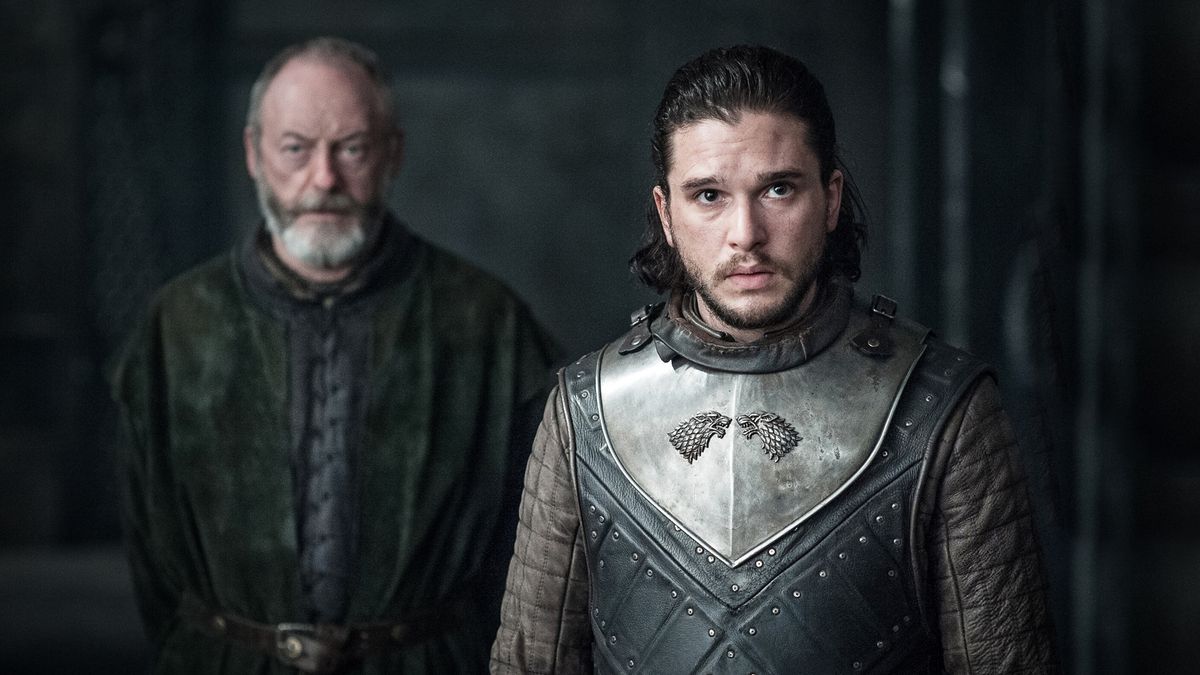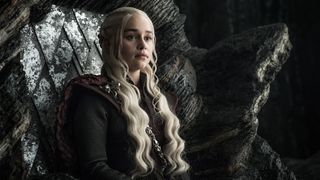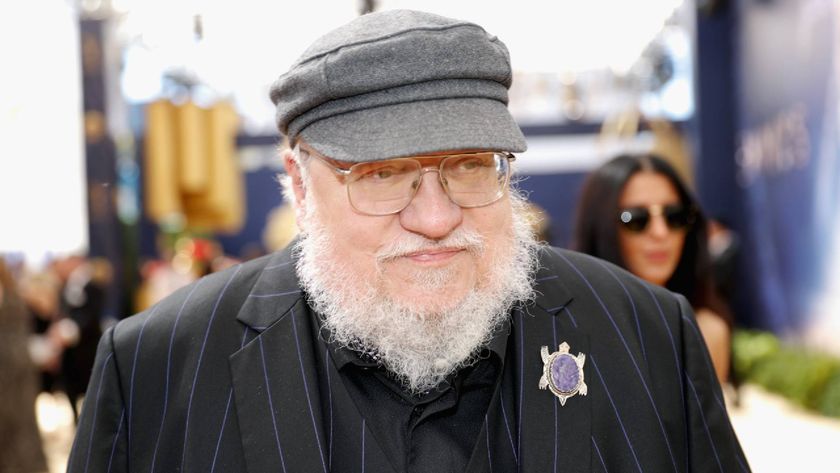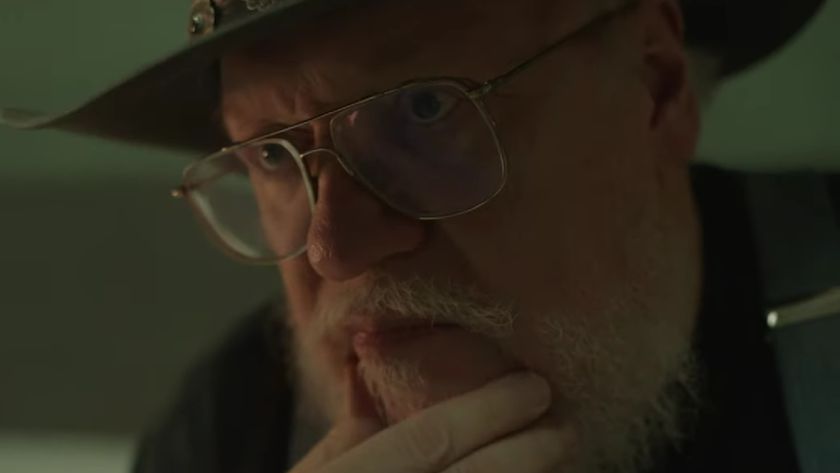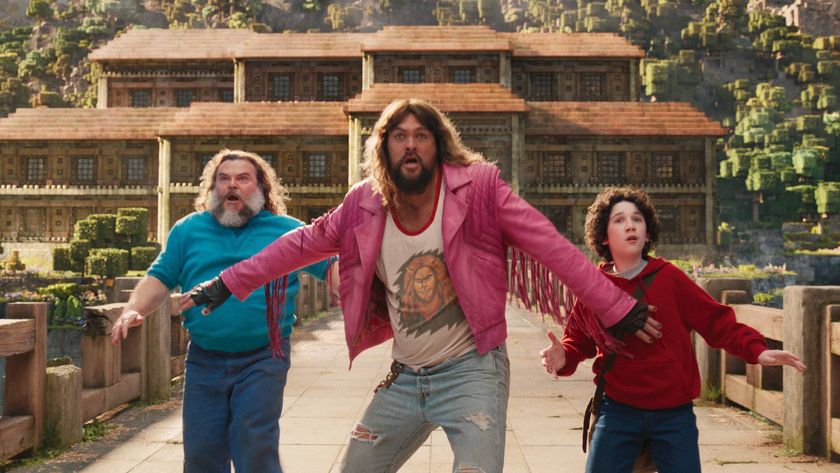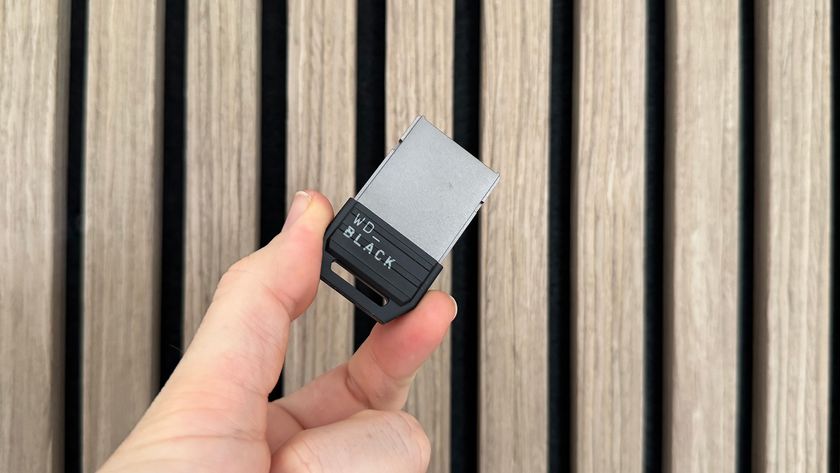12DOVE Verdict
A slower, more considered episode that delights in toying with the viewer's expectations.
Why you can trust 12DOVE
This was the most significant moment in Game of Thrones. The meeting between Jon Snow and Daenerys Targaryen. Fire and Ice. Nephew and aunt. Forces of good and justice combined to save the Seven Kingdoms from tyranny and supernatural apocalypse. Fans have demanded and anticipated it since the beginning of the show, 62 instalments ago. It’s wonderfully fitting, then, that the ‘bad guys’ completely steal the episode while the ‘good guys’ are nobly posturing.
Let’s start, then, with the biggest attention-thief of all - Euron Greyjoy, who continues to shine brightest in a season otherwise determined to slow-burn. His commentary as he drags Yara Greyjoy, Ellaria, and Tyene through the streets of King’s Landing is delicious villainy, and it contains some of Game of Thrones’ most darkly-funny one-liners. “Did you see little Theon’s face before he jumped overboard? What a twat.” Direct, to the point, perfectly observed. The fact Cersei relies on his hubris and love for the limelight is a superb indication of how well the Lannister Queen knows both her enemies and her adversaries. And it’s this knowledge that truly wins the episode.
Her and Jaime’s strategic planning of Casterly Rock vs Highgarden is the second victory for the villains in as many weeks. Cersei’s torture of Ellaria Sand by infecting Tyene with The Long Farewell - the same poison used to kill Myrcella - and leaving her to rot in front of her mother, mere inches from touching distance is as poetic as justice gets, if a little grisly. It seems Thrones has upped its game in even when it comes to macabre torture. With the poisoning of Lady Olenna at the end of the episode, and her subsequent confession to the murder of Joffrey at his wedding, this marks Cersei finally getting her revenge for the death of two of her three children, hence the quite literal episode title.
Queen’s Justice, then, is the story of the righting of wrongs. It’s also a significant victory for the underdogs - something we’ve previously cheered and applauded in Game of Thrones. That the showrunners have chosen to deliver such a sweeping triumph for the ‘villains’, wrapping it up with a layer of sweet justice, is a mark of how mature the storytelling has become. Had the events played out with different characters, we’d be cheering, yet the episode leaves the viewer feeling a little flat. We’re getting the kind of storytelling we demand, but it’s happening to the wrong people, further demonstrating that there’s always more than a single point of view. As pure TV entertainment, Queen’s Justice is middling at best - lots of talking, muted action, and very few genuine shocks. As a narrative designed to subvert the expectations of its viewers and give them pause to truly ponder the nature of the show - and fantasy TV as a whole - it’s a masterclass.
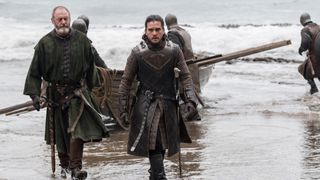
In stark (pun intended) contrast to the Lannister’s expert strategy, and Euron’s watchable malevolence, the long fabled meeting between Jon and Daenerys feels like a bit of a mess. A deliberate, smartly written mess, I should add. It’s an awkward coming together of two people with different agendas, who essentially want the same general thing: good stuff. The initial meeting is pure grandstanding, as Dany demands Jon ‘bend the knee’ and Jon stubbornly refuses. It’s an anti-climax as many would have expected the two to become instant friends, and they leave it on a stalemate that is only partially resolved throughout the episode’s entire length.
Dany’s offer to let Jon mine the Dragonglass is perhaps her smartest move in an episode filled with unintentional blunders and dissatisfying meandering. They are wasting time by bickering about family loyalty. Jon should never have left Winterfell with snakes like Littlefinger whispering in Sansa’s ear. And Daenerys shouldn’t blindly assume that Westeros is hers by right. Queen’s Justice demonstrates very clearly that the notion of ‘good’ and ‘evil’ barely matters. It’s about who has the better plan, who wants it more, and who is willing to get their hands dirtiest to get it. That Jon and Daenerys want to do the right thing barely matters - they need to be more specific, and they need to want it more than the Lannisters.
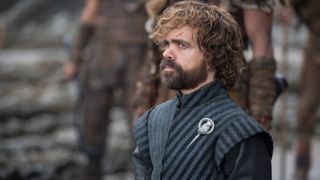
That’s not to say the ‘good guys’ are without hope or a spark of life. There’s a definite look of attraction between Daenerys and Jon (after she allows him the Dragonglass), which will delight fans desperate to ship the pair. And Tyrion, despite being out manoeuvred, remains hugely watchable, bringing charisma to a meeting between two major characters known for being predictably stubborn and sullen. It’s fast becoming his main job in the show. His ‘brooding’ scene is classic Tyrion, and the line he delivers where he dresses up his own advice as ancient fable is very well observed, especially when Dany calls him out on it. He’s carrying Daenerys through a series of empty, grandstanding speeches, and retaining an element of personality in a plotline largely concerned with large military manoeuvres.
Similarly, up north, the joy of seeing the Starks slowly reunited rather offsets the fact that Bran is nothing more than a narrative device now, existing to fill in backstory and generally ‘be wise about stuff’. He’s even deliberately played as neutral now, showing little emotion when he actually sees his long-parted sister. The only real piece of clumsy storytelling here (although you could argue it’s a subtle sign of how well informed Littlefinger is) is where Bran appears at Winterfell the EXACT moment after Baelish tells Sansa that she needs to see everything. Which is what Bran does. In fact, he even reminds her that he “sees everything” as he sits by the Weirwood tree, doing a piss-poor job of explaining who the three-eyed raven is, and acting like a pretentious student who just returned from a gap year where he 'found himself' trekking through the jungles of Borneo on daddy's dollar. Come on, Bran - put a bit more effort in, mate; Hodor would be livid.
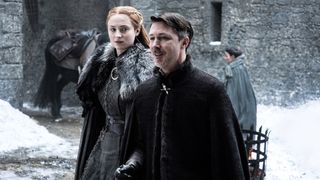
Elsewhere Theon is saved by a reluctant bunch of Greyjoys, his cowardice treated with casual acceptance by the crew. And in Oldtown, Sam has cured Jorah of his Greyscale, receiving both a slap on the wrist and a shake of the hand for it. Both are sidenotes in an episode that concerns itself more with the grand, strategic duelling between Queens rather than the smaller, deeply important human stories.
There’s little doubt who is winning season 7. Cersei’s victories, however, aren’t just military - her forces and her allies are simply more watchable than the heroes, something the showrunners are playing on heavily in the first half of this run. Queen’s Justice isn’t the best episode of Game of Thrones to date, and is probably the quietest of this season, but it’s definitely one of the smartest because it genuinely makes us question our assumptions. Is Daenerys actually going to win? Can Jon really hold the north against the coming storm and give Thrones a happy ending? Is there a genuine chemistry between the two? And does Cersei like a finger up the bum? The answers are coming (er, most of them), but we’re far less certain about them now, and that is the true beauty of Queen’s Justice and Game of Thrones season 7 as a whole.
More info
| Studio | HBO |
| Air date | 19 July, 2017 |
